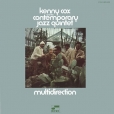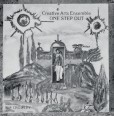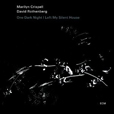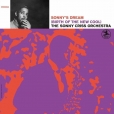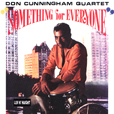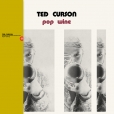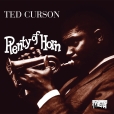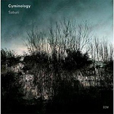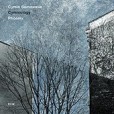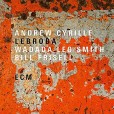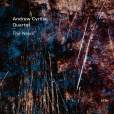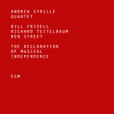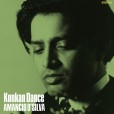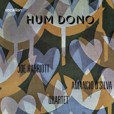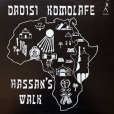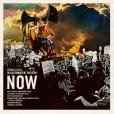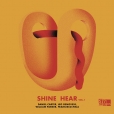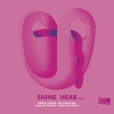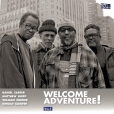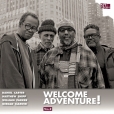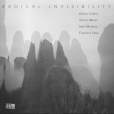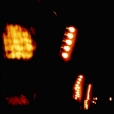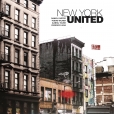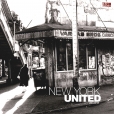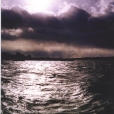Your basket is empty

Landmark Detroit jazz. Trumpeter Charles Moore was the founder of the Detroit Artist Workshop; he and pianist Kenny Cox would go on to found the highly influential Strata Records. The pair split the compositions here. The second of the Quintet’s two Blue Notes, AllMusic likens this 1969 session to Andrew Hill’s Grass Roots, Jackie McLean’s Jacknife, and Grachan Moncur’s Evolution.
Another key document of the Los Angeles radical jazz underground, by way of Outernational Sounds.
A tour de force of spiritually energised independent jazz music, this is pianist and composer Kaeef Ruzadun Ali’s debut recording as leader of the Creative Arts Ensemble, as it emerged from Horace Tapscott’s legendary Pan Afrikan Peoples Arkestra,
PAPA mainstays like reedsman Dadisi Komolafe, drummer Woody ‘Sonship’ Theus and altoist Gary Bias are here; besides such veterans as Henry ‘The Skipper’ Franklin on bass, and George Bohannon on trombone. Kaeef’s sister B.J. Crowley provides visionary, sanctified singing.
Classic spiritual jazz, available again as an LP for the first time since 1981; with the recordings at full length on vinyl for the first time ever.
Piano duets with David Rothenberg, playing clarinet and bass clarinet.
Scorcher!
Just cop the opener. Such a knockout!
Six Horace Tapscott compositions and arrangements. Swirling, passionate, raging, valedictory, richly allusive music.
Teddy Edwards is here; Tommy Flanagan. Criss is on fire.
Hotly recommended. Something really special.
Always hard-sought-after for the jazz dance gem Tabu, and the overall blend of Cal Tjader, Les Baxter and Luiz Bonfa. “In a way it’s world music,” says Don. “Polynesian, samba, Brazil, jazz, West Indian. It has the energy of Latin and funk records.”
Outstanding modal set for Futura in 1971, with the superb French trio Georges Arvanitas, Jacky Samson, and Charles Saudrais, expertly proliferating Mingus and Trane.
Farsi love songs, including a tribute to Norma Winstone, from the German-Iranian singer Cymin Samawatie.
Cymin Samawatie and her trio, joined by violist Martin Stegner as a kind of second singer, deepening the sense of East/West dialogue in the music. Settings of the Iranian poet Forough Farrokhzaad — to whom the album is dedicated — besides Cymin’s own lyrics, classic Sufi poetry by Hafiz, and the verse of Nima Yushij.
The great drummer with Wadada Leo Smith (who chips in a seventeen-minute tribute to Alice Coltrane) and Bill Frisell.
With Bill Frisell and Ben Street carrying on from the Declaration Of Musical Independence line-up, plus pianist David Virelles.
The fifth album this Goan guitarist recorded for Denis Preston. ‘It’s unlikely you will ever hear Anglo-Indian music as subtle or as beautiful as this’ (Jonny Trunk). With Stan Tracey, Don Rendell and co in 1974.
Legendary jazz fusion of Indian, Caribbean and Eastern influences, from 1969.
With Joe Harriott, Ian Carr, Bryan Spring, Dave Green and Norma Winstone.
Recorded at the tail end of summer 2020, in the garden behind Chicago’s Experimental Sound Studio, by this collective of artists, musicians, singers, and dancers, including Angel Bat Dawid and Ben LaMar Gay.
“It was about offering a new thought,” says Locks. “It was about resisting the darkness. It was about expressing possibility. It was about asking the question, ‘Since the future has unfolded and taken a new and dangerous shape… what happens NOW?’”
Another reaching, cosmic, old-to-the-new foray by saxophonist and multi-instrumentalist Daniel Carter, pianist Leo Genovese, bassist William Parker (also playing gralla and shakuhachi here), and drummer and vocalist Francisco Mela (singing snatches of traditional Cuban music).
